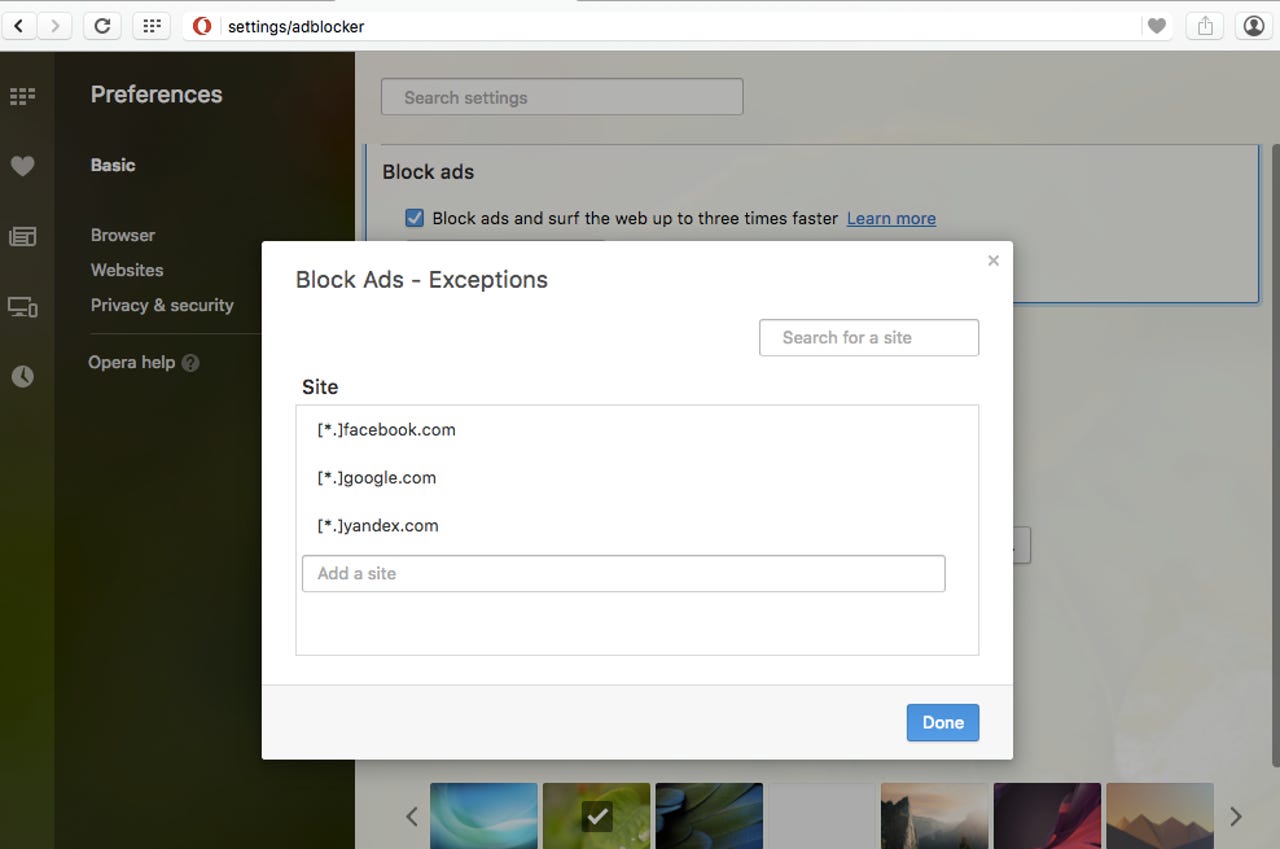Opera: Our new built-in ad blocker halves Chrome's memory footprint, speeds webpage loads

Opera's default whitelist of sites permitted to display ads.
Opera has released Opera for the desktop and Opera Mini for Android with an in-built ad blocker.
The native ad blocker in the latest stable version of Opera for the desktop has been moved up from the developer channel where it's been since March. Opera has also rolled out an in-built ad blocker for Opera Mini on Android.
According to Opera, the new Opera Mini with the ad blocker will make webpage load times 40 percent faster than without ad blocking on smartphones, and as much as 89 percent faster on the desktop.
It also says native ad blocking on the desktop makes Opera less memory-intensive than Chrome. With the native ad blocker feature, Opera reckons it uses 604MB for 10 browser tabs, compared with 1,274MB for Chrome without an ad blocker.
Opera boasts that compared with third-party ad blockers, such as AdBlock Plus, its built-in feature can block ads earlier.
The feature is disabled by default and can be activated from settings in Opera where the user can manage exceptions. Notably, four default exceptions include Baidu, Facebook, Google, and Yandex. However, users can remove these from the exceptions list if they wish.
Native ad blocking is a curious choice for Opera, given that it also owns a mobile advertising business, Opera Media Works. And Opera earns revenue by making Google the default search engine in its desktop browser, which currently has 59 million users. Opera also has around 120 million mobile users.
Opera's head of desktop engineering, Krystian Kolondra, explained that while the company does have a stake in mobile advertising, it's also a consumer brand and sees ad blocking as something that consumers are demanding.
Kolondra said Opera had consulted ad industry bodies such as the Internet Advertising Bureau (IAB) and thinks it can influence the ad industry to improve ads through existing standardization efforts, and says it is in talks to see how a browser could support its LEAN initiative.
IAB announced the program in October, as its response to rising adoption of ad blockers and following Apple's support for ad blocking in Safari on iOS.
"Opera is now talking with IAB to see how a browser can implement support for their LEAN initiative, once this is ready, if it truly manages to serve the end-user needs for speed," Kolondra wrote.
Opera also thinks its benchmarking tool, which compares ad block and non-ad blocked page load times, will be helpful for advertisers and publishers to understand the impact of heavy ads.
Opera is focusing on popular features it hopes will attract more users, recently outing a new built-in VPN for the developer channel on desktop.
